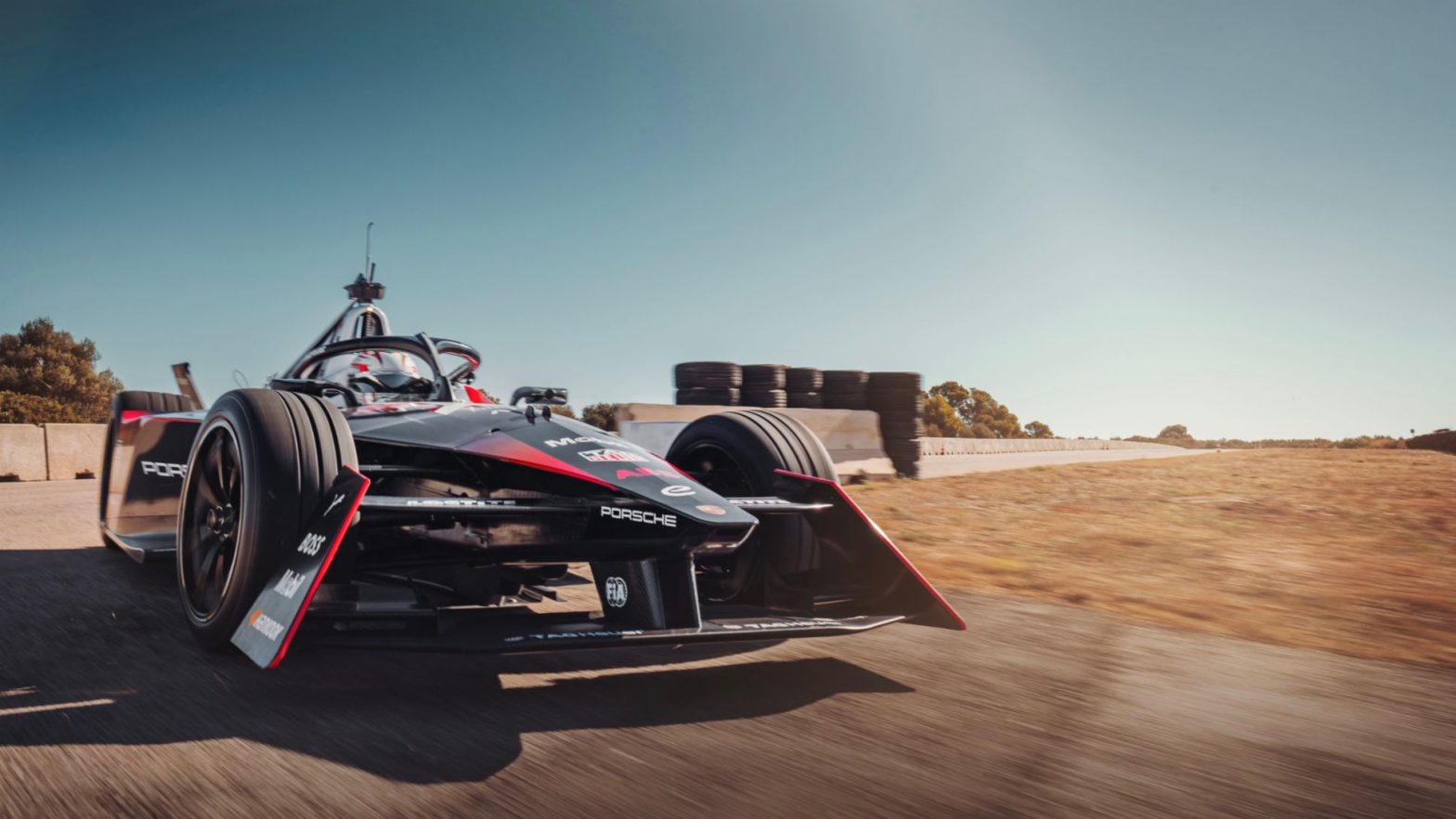The eleven teams and 22 drivers contesting the ABB FIA Formula E World Championship will conduct pre-season tests in Valencia to collectively prepare for the first round of season 9 in Mexico on 14 January 2023. The official joint tests will be held from 12 to 16 December on the Circuit Ricardo Tormo, where the new Gen3 racing cars take centre stage this year. The TAG Heuer Porsche Formula E Team will put the Porsche 99X Electric Gen3 racer – which was refined in the Porsche Development Centre in Weissach – through its paces at the final shakedown ahead of the season-opening race.

“Our goal in developing our new car was to get hold of all of Porsche’s in-house components as early as possible to allow us to prepare as best we can for the new season,” says Florian Modlinger, Director Factory Motorsport Formula E. “The biggest challenge for us was to understand our brand-new car in the shortest possible time and tap its full potential within a very tight timeframe.”

The parts that were developed and built within the company for the Porsche 99X Electric Gen3 are in the rear of the electric racer: the rear powertrain and suspension as well as the entire rear structure and, most notably, all of the very complex vehicle software. The remaining components are identical and mandatory for all Formula E teams.
State-of-the-art technologies and materials
“We used cutting-edge technologies and materials to create an ultra-light rear structure in Weissach,“ says Martin Füchtner, Technical Director Formula E. “That puts us in the position to add additional weight to improve overall efficiency.”
The new Gen3 cars are the fastest, lightest, most powerful and most efficient electric racing cars ever built. The Porsche 99X Electric Gen3, which celebrated its world premiere on the 7th of November in Franciacorta in Italy, is lighter, shorter and more powerful compared to its 2022 predecessor. As a result, the new vehicle displays more agility and greater overall efficiency.
A glance at the technical specifications of the Weissach-developed electric racing car with which the TAG Heuer Porsche Formula E Team will fight for the world championship title (with the predecessor’s data in brackets): The Porsche 99X Electric Gen3 measures 5016 mm (5200 mm) overall in length, 1023 mm (1063.5 mm) in height and 1700 mm (1800 mm) in width. Its wheelbase was shortened to 2970 mm (3100 mm). While its weight dropped to just 850 kg (903 kg), maximum power increased to 300 kW/408 PS (220 kW/300 PS) during a race and 350 kW/476 PS (250 kW/340 PS) in qualifying and Attack Mode. Full regeneration rose to 600 kW (250 kW), with more than 40 percent (25 percent) of the energy used recuperated via regenerative braking.
Software engineering is an important performance factor
“The shedding of more than 50 kilograms of weight plays a critical role in the overall efficiency of our car. This leads to fewer friction losses on the racetrack as well as greater agility,” states Martin Füchtner. Software engineering is an important performance factor in Formula E. “Mastering all control algorithms allows us to analyse data quickly and gives us important performance indicators as well as warnings of possible problems. This helps us to react swiftly and respond appropriately to the different racing conditions. Potentially, this is a key to success.”

The Porsche 99X Electric Gen3 and its rivals feature a powertrain at the front and rear for the first time. The new front powertrain adds 250 kW to the 350 kW at the rear, resulting in energy recovery with an output of up to 600 kW – more than double the regenerative capability of the Gen2 vehicles. The electric motor achieves about 95 percent power efficiency compared to around 40 percent for a top internal combustion engine.
Final shakedown in Valencia
The TAG Heuer Porsche Formula E Team is ready for the last rigorous test of the Porsche 99X Electric Gen3 in Valencia and the first race in Mexico. “There’s a sense of excitement as we head into the new season of the ABB FIA Formula E World Championship,” says Florian Modlinger. “The new Gen3 cars represent a technological milestone in all-electric racing. They could make the races even more spectacular for spectators and give the popularity of Formula E worldwide even more of a boost. We want to contribute to this with the Porsche 99X Electric Gen3.”


